The one thing that is certain is the situation is always uncertain — in Cannabis regulation, technology and products are constantly changing as the industry evolves — just right now Oregon is going thru a complete packaging change where all old packaging used on March 31st will not be valid to sell on April 1st. But there is a very small team approving everything, even if they approve everything on time it’s not realistic to get things printed in time. So there will be down time. Always down time.
I had the pleasure of interviewing Kiran Sidhu. As the founder of Halo Canna, one of the leading cannabis oils and concentrates companies, Oregon’s Cannabis King is a serial entrepreneur with a knack for being ahead of the business curve. Born to a computer engineer father and physician mother, Sidhu learned from an early age how to navigate the business world. While studying computer science at Brown University, he and a classmate founded an IT company after Sidhu recognized the potential of a global industry reach, expanding the company to LA, Silicon Valley and India. Armed with an M.B.A. in Finance from The Wharton School of Business, Sidhu also held positions as a strategy consultant with Price Waterhouse, an M&A investment banker with Merrill Lynch, as well as founding and financing a leading EU electronic money institution, and went on to leading the NASDAQ IPO of On-Stage Entertainment as its CFO in the late ’90s. Sidhu continued his entrepreneurial pursuit with a new venture in a new industry: cannabis. In 2013, when cannabis was just beginning to pique the interest of business leaders, Sidhu arranged the funding for Golden Leaf Holdings, one the first US Cannabis companies to go public in Canada on the CSE. With a focus on improving the technology involved in extraction, Sidhu had his eye on the next big thing. He found it at the University of Southern California. A physician scientist and colleague working on novel therapies for cancer treatments introduced Sidhu to the concept of volatile extraction using chemical solvents. The concept sparked the innovator’s intrigue, and he experimented with the possibilities of extending the technology into cannabis. In 2016, Sidhu founded Halo Cana. With great success in the US, he continues to look for new ways to innovate, and new technology to incorporate into what he sees as an industry with limitless potential. “We are only at the start of an industry boom and will continue to see integration of oils and concentrates into mainstream,” said Sidhu. “Cannabis will be mixed with flavors such as turmeric and lavender, rosehip or chamomile, and it wouldn’t surprise me if even chains such as Starbucks introduce cannabis cappuccinos to their product offering.” But there are still hurdles ahead. Sidhu’s new focus is on the globalization of the cannabis industry, and he believes that staying focused on science and compliance are key to its success. He plans to extend Halo Canna into international markets as soon as this year.
Thank you for joining us! Can you share the most interesting story that happened to you since you began leading your company?
1. In April 2016, HALO Inc — newly minted as a legit. Cannabis supplier — moved in to its new office building. By the 1st of December we were operating under our brand new medicinal marijuana license to supply cannabinoids in the U.S state of Oregon. It might sound ironic now — we supply about 20% of Oregon’s cannabis concentrates — but at that time our first thought was “this is a tricky neighborhood to work from”.
I realized I had to revise my business model. At first, Halo just wanted to make a premium quality product. I’d figured that the same principles apply to all businesses — whether selling carpets, candles or cannabinoids. When you invest in your employees, build a safe supply chain, listen to your customers and place quality at a premium, the market listens and the customers start calling. But the neighborhood we’d picked to trade from taught me an important lesson. As a legal supplier of cannabis containing products, we found ourselves operating in a part of town that was absolutely notorious for drugs problems.
This hit me when the Drug Enforcement Agency raided a house a few blocks away. It was known as a hang-out place for people using much harder illegal narcotics. One of the guys hauled in by the DEA said “Why are you bothering us when there is that huge operation selling cannabis just down the street?” The DEA didn’t know we were operating just a few blocks away — with around 60 employees.
Make no mistake. Cannabis was legal — but the debate was still contentious in public life, and the DEA didn’t exactly trust cannabis manufacturers. I was nearby in Metford, Oregon at my business partner Andreas’ house, when my cell rang at six o’clock in the morning. The DEA were demanding entry to our facility. I told our guys not to let them in, unless they had a search warrant. I immediately called my lawyer.
But that episode was important for Halo. It made us realize that our industry carries a lot of responsibility. Any business that sells psychoactive substances — whether pharmaceuticals, or alcohol — has to put customer safety at a premium, and prove to its doubters that we’re just as professional in our compliance guidelines as any multinational conglomerate.
It transpired that the police were looking for code violation. They were calling judges to gain entry. I released that they did not understand that HALO was a legitimate business — we had a full supply license from the state. In the end the police ordered all of our employees to go outside and line up against the wall. It was bitterly cold. Our employees were lined up outside the factory in their lab coats while the sky swirled with snow. Andreas and I were really upset by this. Your business is nothing without human capital. I’m still grateful to those employees — they built HALO. I knew our lawyer was preparing the necessary information to file with the state and prove that we were fully licensed — but in the meantime our guys were freezing. Andreas and I drove straight to Walmart. We bought hundreds of blankets to keep our guys warm. Our lawyer managed to send all the necessary information to the police station pretty quickly. It showed beyond any doubt that we were fully licensed. I’m not going to name the policeman in charge of the raid, but he acted with grace befitting his profession. Once he realised we were a legitimate enterprise, he immediately comforted me. The policeman explained that he was just doing his job, and told Andreas and I that we were not just behaving responsibly but obeying the law to the letter. We hadn’t exactly been happy with the Feds — being shaken down at 06:00am while your employees shiver doesn’t exactly inure you to the U.S DEA.
But that policeman showed Andreas and I that cannabis suppliers can — and must — work with law enforcement. The experience was formative. Shortly afterwards, the police department acknowledged our efforts to be adherent to the law — both in spirit, and in letter. The cops requested a tour of our factory. We’ve developed a very strong working relationship with the police, and we have a great deal of respect for many officers who patrol our community. We have also welcomed many local politicians, political groups and even Senators to visit our Medford facility.
But our make take-away from the whole experience was that we should have recognized that medicinal marijuana was still a very young industry — everyone was subject to a lot of suspicion and a lot of scrutiny, because laws were vague and civil society was still skeptical. If we were had the chance to do things again, we’d start by engaging all stakeholders directly from day one — like any other responsible business does. We’d introduce ourselves to everyone candidly and openly — from the fire department, through the planning authorities, to local building inspectors and law enforcement officers. We’d ask them their concerns directly — and what we could do to mitigate them effectively.
2. Around 1998 I was hired as CEO of a company which provided “on stage entertainment”. The company is called Legends and Concerts, and owns a lot of other assets. I was answering to the then CEO, David Hope. Our remit was to make the business “straight” — after numerous tax infractions, inspections and fairly egregious compliance concerns. The atmosphere was especially crazy and incredibly punishing.
I’ll illustrate a typical day. We’d have ultra-slick, hard-hitting commercial lawyers in the office quizzing us on compliance and due diligence. Next, we’d meet financiers in three piece lounge suits and cowboy boots.
Meanwhile, the building hummed with our employees — who happened to include showgirls, Elvis impersonators and Marylin Monroe — who didn’t only resemble the actress closely, but retained the persona of JFK’s mistress off-stage too. One day, the really shady guys in the background told us they opposed a public offering. Johnny Steward arranged a full scale intimidation session, where various underworld figures hustled in to our meeting room and laid their pistols on the table. They were saying “What’s happening?” “What’s going on?” — although you can imagine that the typical character who wants to steal your show business with a raider attack uses considerably more expletives. I’ll put this delicately. The legal eagles and financiers were shitting a brick. They left. It set us back.
After that I laid down a three line whip. We enacted a policy prohibiting firearms. Anyone entering my building with a firearm was welcome — so long as they checked it in. Telling guys with guns that they can’t carry them is an ostensibly scary position to take — but I refused to deviate. We got that business on track. The company went public. Our zero tolerance policy on firearms wasn’t just a transient idea — it became a company-wide message.
I learned that you need inclusion. We were running our public offering but we hadn’t included stakeholders who caused us risk — i.e. the guys with weapons who wanted to strong-arm us in to silence, because we weren’t following their line. Yet these guys came came on side when they realized that the suits weren’t trying to take over — or on-side in so much as the threats ceased.
3. This industry requires you to source material in hard-core black-market routes. Jeremy Hayes is employed by HALO who has been in the business from an early age and had a job of sourcing material off the beaten track. Typically, when you source material, you come in a truck with a large sum of cash. Jeremy wore understated clothing- he arrived in jeans and a jacket.
Jeremy is incredibly street smart and arrived to the gate where there were guard dogs. There was a golden retriever and an incredibly large German Shepard. He went through the gates to where guys were standing with rifles. Jeremy and the security guard got out of the car. One of the dogs ran up to the security guard and attacked him- he bit a large chunk of his bottom off. Blood was everywhere.
He takes out his gun to shoot the dog and Jeremy yells at the top of his voice ‘don’t shoot the dog, or we’re all dead.’
The exchange was made and the deal went down. They received the money and raw material and the security guard had to travel back in the truck, blood everywhere. He now wears a scar.
In hindsight they would have asked them to clear the attack dogs. They have strong security policies and know how you handle situations.
Can you share a story about the funniest mistake you made when you were first starting? Can you tell us what lesson you learned from that?
When we started in the chicken coop in 2015 there was little control around hydrocarbon extraction. We used an open loop system where we poured Butane over the material (which is now prohibited) the systems are closed loop so Butane cannot escape. In order to detect Butane levels in these very early days we kept a chicken or two around. If they fell over or were not being active it indicated to us that there were very high levels of Butane around. We learned early on that closed loop systems were needed which eventually became the industry standard.
Are you working on any exciting projects now?
We have just launched DabTabs™ — ceramic matrices designed to provide the most convenient, consistent, and enjoyable full-spectrum dabbing experience with precisely measured dosing.
This is a revolutionary new product that will revolutionize the way cannabis consumers use cannabis concentrates or extracts.
DabTabs™ are proprietary ceramic discs that store a pre-measured dose of either cannabis concentrate or oil. The DabTabs™ provide a cleaner, smoother, mess free way to consume full spectrum cannabis concentrates that capture the full benefits of the cannabis plant. They work with almost every dabbing device on the market and can be used easily on the go or at home.
Made from naturally-derived, biologically-inert materials, the pellets are kind on the body and the environment with virtually zero cleanup — no burned wax to scrape off and no excess oil to reclaim. Each are designed to hold a specific volume of material, eliminating cannabis manufactures’ need to gram out each package.
When heat is applied and the triggering point is reached, the material in the matrix vaporizes and is released through the pores. Cannabis connoisseurs find that “dabbing” is the best way to experience the full spectrum of cannabinoids and terpenes. They are the first and only concentrate and extract delivery system that remains dry to the touch, with a measured dosing system that allows for a full spectrum dabbing vaporization experience without combustion.
DabTabs™ are a breakthrough product, and in a highly competitive space provide a refreshingly new and different way for consumers to enjoy their cannabis experience. We are thrilled to be partnering with iLo to introduce DabTabs as the first product under our GILT brand.
Halo exclusively licenses DabTabs for Oregon, Nevada and California from ilo™ Vapor: a division of Iconic Ventures, Inc., is a Portland, Oregon based technology, brand and product development company. Its patent pending devices are reinventing vaping. Through cutting edge technology and innovative design, ilo’s™ mission is to create clean, reliable and convenient products that deliver the optimal vaporization experience.
None of us are able to achieve success without some help along the way. Is there a particular person who you are grateful towards who helped get you to where you are? Can you share a story?
My father who co-invented the floppy disk drive and was an entrepreneur in his own right. My parents are investors in Halo. My father visited all our initial sites in Oregon and the production facility we operate out of in Las Vegas. After looking at things early on he told me that it would take years not months to get the business rolling and not millions but tens of millions of dollars. He was definitely right.
This industry is young dynamic and creative. Do you use any clever and innovative marketing strategies that you think large legacy companies should consider adopting?
In an industry that is moving so quickly with so many product and technology changes. It hard to settle on product line ups and equipment for longer periods of time (sometimes change is as quick as 6 months). We have these simple sayings. “small machines small problems” what I use today I probably will not use in a year and lastly when we add products or expand facilities do it modularly do not build large product suites or ranges build on specific technologies and do not build large facilities with custom systems that take long to configure and you will have to throw out within a year.
Can you share 3 things that most excite you about the Cannabis industry?
It’s a complete mad house and you need to borrow from every experience you have had. You have massive regulatory situations to solve continuously, your products and technology where you need to compete but remain flexible but despite this your providing consumers and patients with products that do good.
Can you share 3 things that most concern you?
The federal illegal framework. The business we undertake is illegally federally which causes issues at all levels.
Getting professionals to cross over given then federal state issues.
The black market is still rampant since in many states given the onerous taxes, it still cheaper for people to buy product illegally.
Can you share your “5 Things I Wish Someone Told Me Before I Started Leading a Cannabis Business”? Please share a story or example for each.
That the hours would be insane — I was an M&A investment banker and am used to working around the clock. But 3 days straight not leaving the office a few times a year is new for me at 54 years of age.
Everybody is a General Manager — in Cannabis most of your employees are users and some are past drug dealers, so they all have an opinion getting them to stay in their lanes is difficult. We have precise distillation equipment that costs 100,000’s made in Germany, we tell the operators to apply certain parameters and watch if an issue reverts. But they can never seem to just watch. They always need to be changing things they all know better
The one thing that is certain is the situation is always uncertain — in Cannabis regulation, technology and products are constantly changing as the industry evolves — just right now Oregon is going thru a complete packaging change where all old packaging used on March 31st will not be valid to sell on April 1st. But there is a very small team approving everything, even if they approve everything on time it’s not realistic to get things printed in time. So there will be down time. Always down time.
Travel Travel Travel — In Cannabis operating in multiple states you’re always on the road — and it not London, Paris and Munich. Try Ukiah, Medford and Adelanto. Lots of turbo props! This is because it’s the smaller communities that have embraced cultivation and production. All winter long every time I travelled to the northern CA (emerald triangle region) I never the saw the sun, it just rained rained and rained but last week the sun came out and next to our partners facility was a bright double rainbow — hopefully there is a pot of gold somewhere for someone.
So Many Regulators, Regulations and Taxes its impossible to keep track — in Cannabis regulation is changing and so many organizations watch over you at the state, local and county levels. When we started in Medford Oregon local law enforcement was not aware that we even existed and in Dec-16 on a snowy day they raided us thinking we are an illegal operation. They came in took everyone out and lined everyone against a wall. Once they got our license information from the state, they apologized and left.
What advice would you give to other CEOs or founders to help their employees to thrive?
Diversity in your work force. In cannabis it’s a cast of characters. But some of the old school people are critical for our success since they have an old trusted network the precedes legalization. They are not familiar with formal business structures and need a little more space to operate in. It’s critical that the organization adopts to include such people.
You are a person of great influence. If you could inspire a movement that would bring the most amount of good to the most amount of people, what would that be? You never know what your idea can trigger. 🙂
I think the next frontier is hallucinogens to help psychotic conditions. Drugs like LSD in the 60’s were designed for this use. People just took too much (add my Mom and Dr. Barbara Brown here). Now the FDA is approving Ketamine for certain uses. And CA and OR are looking to legalize psilocybin (mushrooms) for medicinal purposes. Wow has the world changed.
What is the best way our readers can follow you on social media?
Follow our feed on: https://www.instagram.com/halocanna/

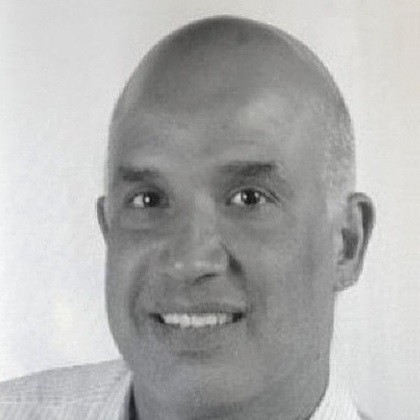
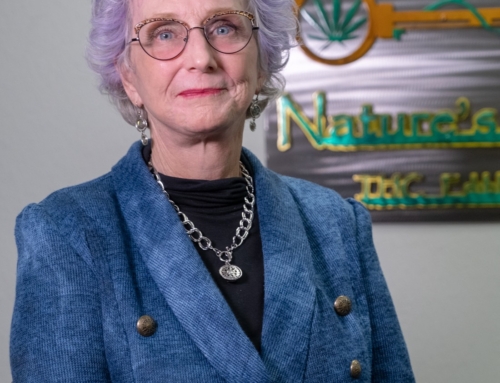
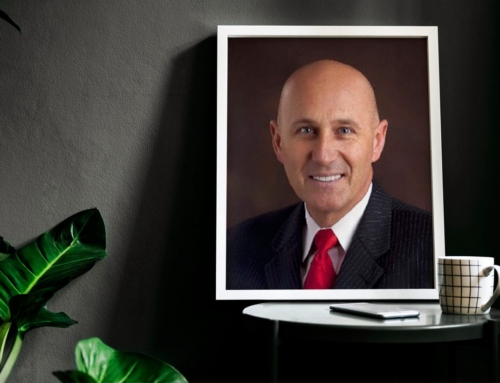
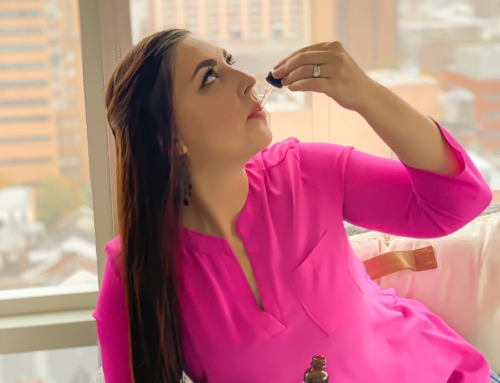

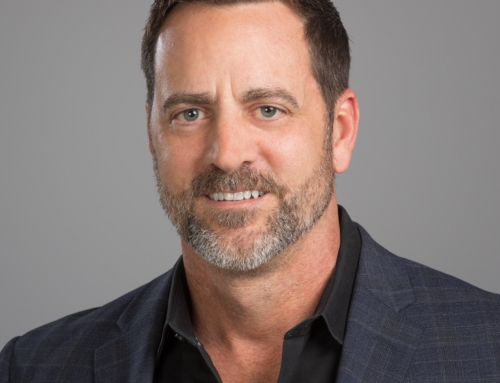
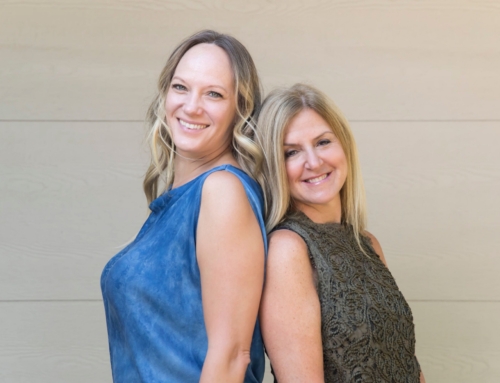
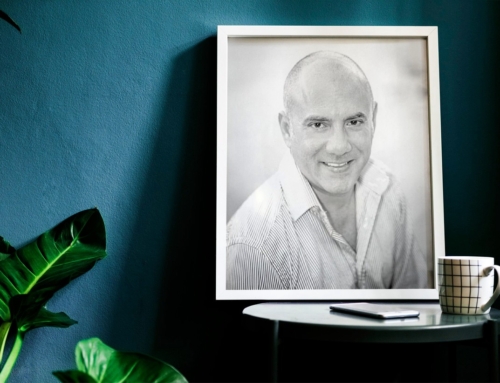
![“The potential to help people [in this industry] is enormous, but there’s still so much to learn.” – Ramon Alarcon, Witi](https://cf.lakesideremedy.com/wp-content/uploads/2020/12/1thj5ekUyxQ69iLz1JJyODg-scaled-e1607882756286-500x383.jpeg)
